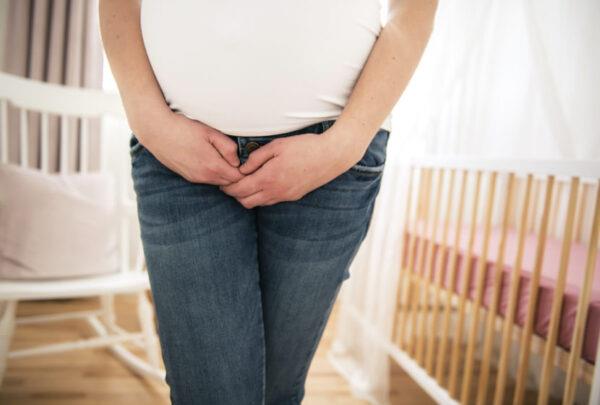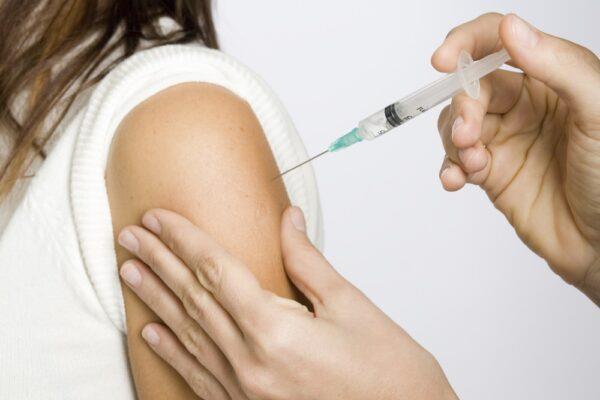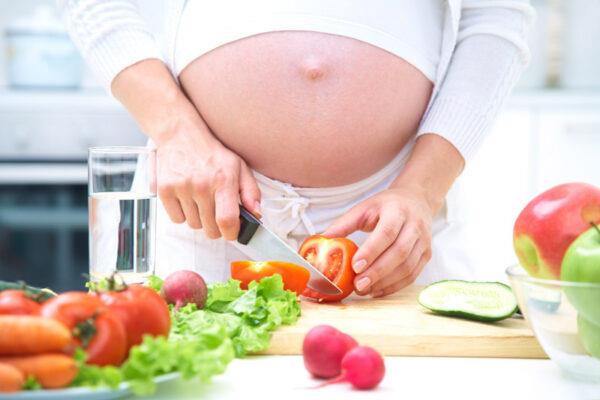Tips for pregnant women how to safely treat genital warts during pregnancy

Women who get genital warts during pregnancy are probably worried that the HPV virus could harm their unborn baby. But most cases do not affect fetal development. An HPV infection can manifest as genital warts or a test showing an abnormal cervix. This changes the way pregnant women with genital warts are cared for. The following article by MSc Tran Quoc Phong will help you better understand the problem of genital warts during pregnancy, as well as treatment to help mother and baby have a healthy pregnancy.
content
- What is genital warts during pregnancy?
- Why do women get genital warts during pregnancy?
- Signs of genital warts during pregnancy
- Treatment of genital warts during pregnancy
- Prevention of genital warts during pregnancy
What is genital warts during pregnancy?
Genital warts are also known as genital warts or warts. This disease is mainly transmitted through unprotected sex; and very popular in today's society. The virus that causes warts is the Human Papillomavirus (HPV). The disease is common in both men and women. About 80% of people are infected with HPV at some point in their lives. Many of them do not cause any problems and will go away on their own. About 40 strains of HPV can be sexually transmitted. This causes genital warts and cancers in several areas such as: cervix , vagina, anus, penis, anus.
Therefore, pregnant women infected with HPV may worry about whether the disease will affect the fetus. However, no link has been found between HPV and miscarriage, preterm birth or other pregnancy complications. On the other hand, the risk of transmitting the virus from mother to child is also very low. Skin tissue can change a lot for women with genital warts during pregnancy.
Why do women get genital warts during pregnancy?
Pregnant women get genital warts through oral, vaginal, and anal sex. Most diseases are caused by the HPV virus. About 30-40 strains of HPV affect the genitals and only a few strains cause genital warts.
In fact, HPV is very common, but the virus can go away on its own without causing any health problems.
The strain of HPV that causes genital warts is different from the strain of HPV that causes warts on the hands, feet, and other parts of the body. But warts can be spread from one person's hands to another's genitals and vice versa.

Sex can make pregnant women infected with genital warts
Signs of genital warts during pregnancy
Warts are characterized by fleshy lumps (warts) that grow singly or in clusters that look like cauliflower. This disease is often difficult to recognize in the early stages. Warts may not appear for several weeks or months after infection. Over time, the acne starts to grow very small and is the same color or darker than the skin color. Severe disease, warts can be large with rough tissue.
Chicken pox during pregnancy usually appears in the following areas:
- Inside or outside the vagina.
- Inside or outside the anus.
- Cervical.
- Lips, mouth, tongue, throat.
- Hand.
- Elbow.
- Heel.
In addition, the disease can cause symptoms such as:
- Vaginal discharge.
- Itchy.
- Bleed.
- Stinging.
- Large and widespread warts are painful.
During pregnancy, changing hormone levels can stimulate warts to grow faster than usual. A pregnant woman's body also produces more vaginal secretions, creating a warmer and wetter environment. This helps the wart to grow better.

Genital warts during pregnancy make pregnant women experience a lot of discomfort in the private area
Treatment of genital warts during pregnancy
Genital warts may go away on their own over time, but the HPV virus can remain in skin cells after they heal. Therefore, the virus can break out and the disease recur at any time. Therefore, managing the symptoms of the disease is important to prevent transmission to the baby after birth.
Using drugs
To treat warts in women, doctors often prescribe medications such as:
- Imiquimod (Aldara): Used to treat certain types of skin growths.
- Podophyllin and podofilox (Condylox): Special treatment for warts.
- Trichloroacetic acid or TCA: Special medicine for warts , rough skin, warts.
However, these drugs may not be used by pregnant women. Therefore, pregnant women are not allowed to use it without a doctor's prescription.
Minor surgery
In the case of large warts in the genital area, it can interfere with the birth process. The doctor will predict and prescribe the use of minor surgical methods for pregnant women such as:
- Cryosurgery: Use liquid nitrogen to freeze the wart.
- Use a laser to burn off the wart.
- Surgical removal.
Natural cures
Some methods of treating genital warts during pregnancy with natural materials such as:
- Tea tree oil.
- Tea.
- Garlic .
- Apple cider vinegar .
Prevention of genital warts during pregnancy
HPV vaccination
Before becoming pregnant, women can get the HPV vaccine to prevent the common strains of the virus that cause genital warts. Vaccines such as Gardasil and Gardasil 9 are given to both men and women between the ages of 9 and 26. They protect the body against cervical cancer and genital warts. In addition, a vaccine called Cervarix is recommended for women and protects against cervical cancer.
These vaccines are prognosticated with 3 doses. The second dose is two months after the first and four months after the third. Although vaccines cannot cure or completely treat the disease. However, they help protect your body from infection with other strains of HPV.
See more: Where to get cervical cancer vaccinations: 4 most prestigious places

Vaccination against HPV before pregnancy helps pregnant women reduce the risk of genital warts infection
Safety measures during sex
Use condoms during sex: This reduces the risk of contracting HPV and other sexually transmitted infections . One study found that using condoms during intercourse reduces the risk of STIs by 70%.
Stay in a monogamous relationship: Only having sex with one partner who doesn't have any genital warts reduces the risk of HPV infection. Sometimes a person may not know they have HPV, because the disease may show no symptoms.
In addition, if you have oral sex, you should clean your teeth immediately after sex.
Healthy diet and lifestyle
You should minimize the factors that weaken the immune system to prevent warts and other diseases; especially in pregnant women to help the fetus develop healthy. Prevent by building a healthy diet and living habits as follows:
Eat foods rich in antioxidants
- Blueberries , cherries, bell peppers , tomatoes , squash,…
- Dark green leafy vegetables like kale , spinach, etc.
- Grains.
- Nuts (hard-shelled nuts).
- Bean.
- Lean.

Build a diet rich in vitamins and minerals to help pregnant women prevent diseases
Restricting foods increases the risk of disease outbreaks
- Red meat.
- Milk, corn, soybeans , additives.
- Caffeine and other stimulants such as alcohol, tobacco, etc.
- White bread, pasta,…
- Foods processed with trans fats.
Increases resistance
- Get proper rest and get enough sleep.
- Increase daily exercise.
- Eat nutritious food and on time.
- Avoid stress, pressure,…
See also: HPV infection in some oral diseases
Hope this article has helped you better understand the condition of genital warts during pregnancy . Although not dangerous, this disease causes discomfort for the mother. This adversely affects the mood of pregnant women. On the other hand, when the disease is advanced, the warts grow in size and cause vaginal obstruction. This condition interferes with the baby's birth and increases the risk of infection to the baby after birth. Therefore, women should take precautions before becoming pregnant. Early recognition of abnormalities in pregnancy, as well as regular antenatal check-ups, in order to promptly diagnose and treat the disease.